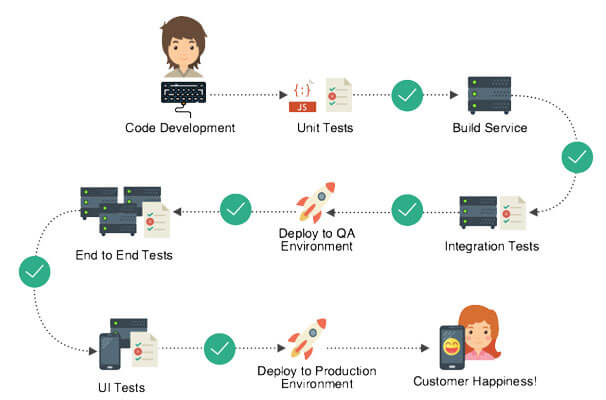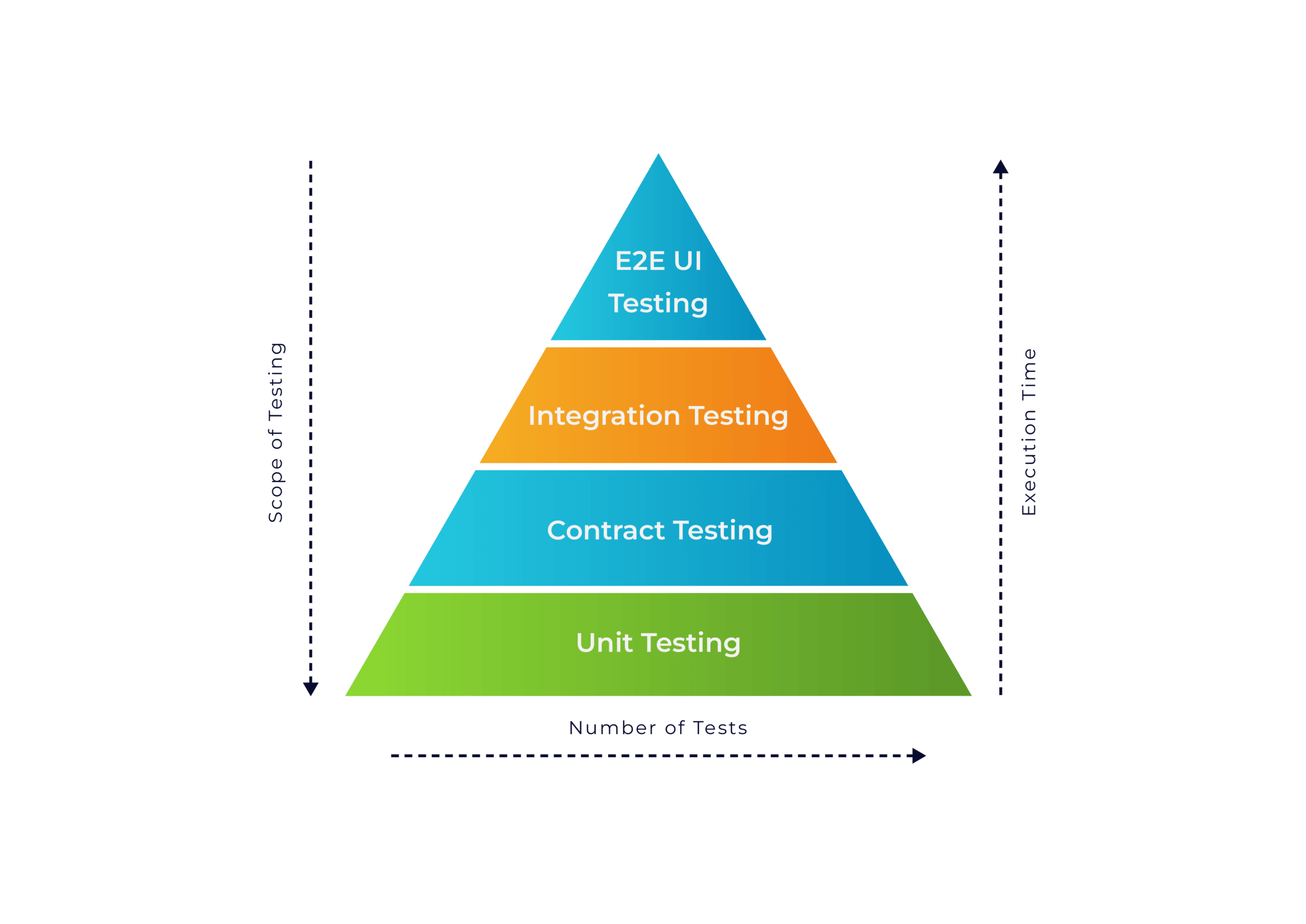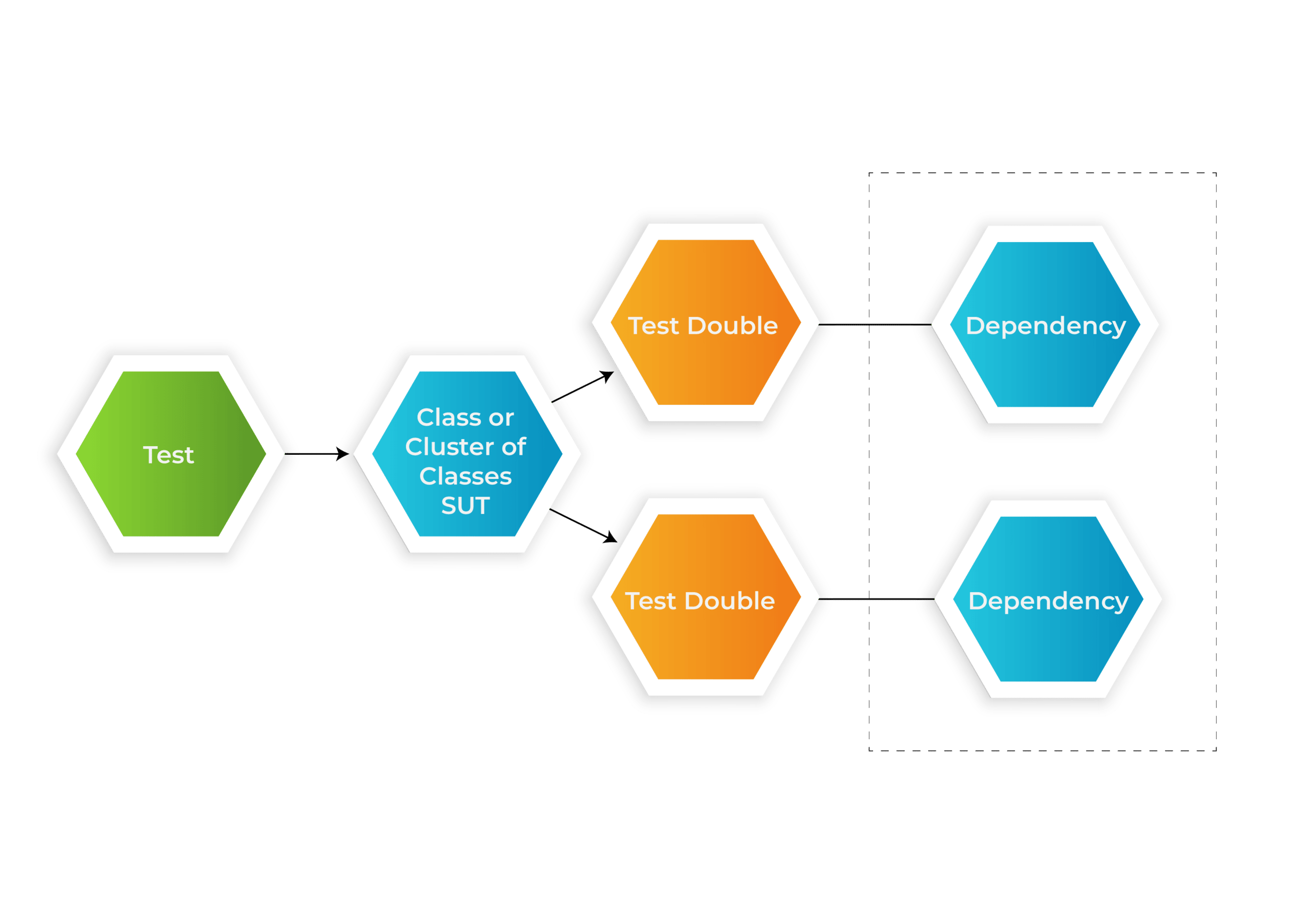Microservices Testing The Thought Frameworks Way!
Introduction
A solution to monolithic architecture’s scalability issues is Microservices Testing. The system is broken into small well defined services this makes way for the additional boundaries to be exposed that were previously hidden. These boundaries provide opportunities to employ microservices testing strategy. When combined they form a complete application/task. We foster our culture to prevent the release of faulty code by integrating testing into the development and release process.
Significance
Importance of Microservices Testing
The developers choose microservices design for its modular properties which is the key factor in Microservices testing, which makes it easier to develop and test than the monolithic architecture. It is a challenge when the application is continuously evolving which makes extensive functional testing predominant.

Repercussion
What happens when you don’t do Microservices Testing?
Considering A Large Number Of Moving Components, Microservices Design Has Numerous Points Of Failure.- Errors and exceptions in the code.
- Ineffective deployments.
- The data center's failure.
- Non-availability of unit tests.
- Interdependent Services
- A new version of the code is available.
- Malfunctioning hardware.
- Poor Architecture.
- Communicating across unstable networks.
Strategy
Microservices Testing Strategies
Functional Testing

Unit Testing
Microservices testing is built on a model of splitting the smallest unit of business logic. These smallest units/services now communicate over a network. Therefore, unit testing validates each business logic/defined microservices.

Contract Testing
The data exchange between the consumer and the client in a seamless manner (For Eg : The API Provider who sends the information and the client who receives the information) is called Contract Testing The Quality Assurance team chooses an optimal solution depending on the end goal of the microservices and customer interface defined. Based on this the type of contract testing is selected.
- Integration Contract Testing
- Consumer-driven Contract Testing
Integration Testing
Individual software modules are combined and tested as a group. This is done before Unit Testing.
E2E UI Testing (End-to-end Testing)
The TF's QA team tests the behaviors of multiple services that communicate with one another in a controlled environment.
Load Testing and Performance Testing - We ensure that the microservices support the SLAs (service level agreements), including the Load Test for the repurpose and performance of functional tests. Resilience Testing - Applying stress on software and observing its behavior under a controlled environment, the performance and the ability to function without core functions/data loss, and how it recovers after unforeseen, uncontrollable events.
Approach
Microservices Testing Approach
5 Important Things we perform in Microservices Testing- In a microservices design, each service is tested as if it were a black box. As a result, we subject all of them to the same stringent test.
- The fundamental links in the Microservice architecture are identified and tested.
- We don't just test the happy path scenarios; because microservices can fail, it's critical to simulate failure scenarios in order to build resilience into your system.
- Starting in development and proceeding through broader testing scopes, we test across phases using a diverse mix of testing approaches, increasing the likelihood that issues may surface.
- On new code, we employ the "canary testing" technique to test on real users and ensure that all of the code is well-instrumented.
Tools
Microservices Testing Tools
- Postman
- Apache JMeter
- SoapUI
- Chaos Monkey
- Gremlin
- Locust
- ZAP
- Gatling
- InfluxDb
- Hoverfly
- Grafana
- Amazon Cloudwatch
Our USP
We have a tradition of delivering trustworthy software on a regular, consistent basis & our service is par excellence. In a world where technology and business are constantly evolving, we are adept at orienting ourselves by introducing new methodologies in our core competence of the Quality Assurance Process
The Thoughframeworkers and their experience in Microservices Testing
Adding value to Microservices testing requirements:

Increase the number of development cycles

Achieve Resilience and ease of execution

Greater Scalability
